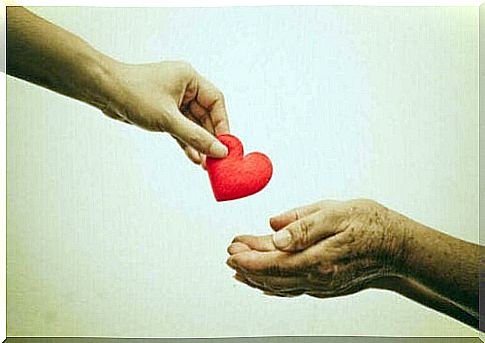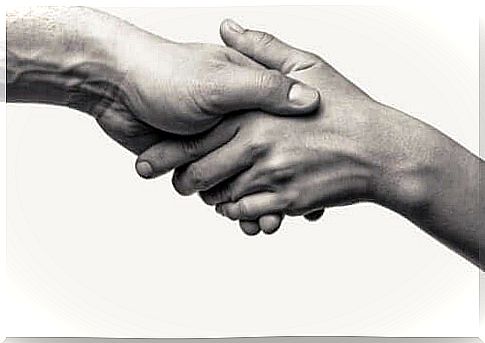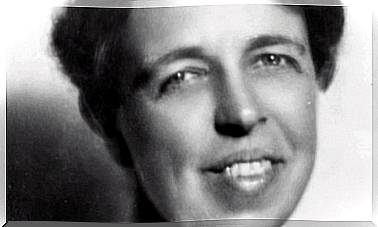Prosocial Behavior: Do You Help Others Due To Empathy Or Anxiety?

Performing prosocial behavior (helping a family member, friend, or stranger on the street) can make you feel altruistic and kind. Giving a helping hand to a person in need can make you think that you are a good person with high values and morals. In the same way, it is common to feel selfish when you refuse to help. But have you ever stopped to think that this helpful behavior may not be exactly a selfless act?
Have you ever stopped to think about the hidden motivations behind your desire to help and be generous with others? Are you sure it is always due to feelings of understanding and empathy? What if the desire to contribute to another person’s well-being is not the cause of your solidarity ? Certain studies that explored these approaches reached interesting conclusions.
Do you help due to empathy or anxiety?
For decades, researchers have studied human prosocial behavior. Why do people help others? Is everyone born with this disposition, or is it cultural learning? Many authors have discussed these and other issues.
Let’s look at this with an example. It has been proven at the brain level that if you look at another person suffering, your brain will activate the same neural networks involved in pain management. In a few words, it is true that most people are to some degree able to experience the pain of others as their own. You can be one of them.

But exactly how do you feel in such situations? The hypothesis that seems to have the most empirical support is the one that says that you can react in two different ways when you see someone in need.
- First, you can react with anguish, disgust, worry or fear.
- On the other hand, you can experience compassion and understanding. You may feel genuinely touched.
Now, depending on various factors, one emotion will rise above the other. First, it will depend on the specific context of the individual’s suffering. Second, at the personal disposal of the observer. Faced with the same event, people may have different reactions. Nevertheless, the same individual may react differently to two separate situations.
What is your motivation?
Whether the situation is causing anguish or compassion in you, you are likely to help someone in need. However, your motivation may be different in each case.
Basically, people tend to have a selfish pattern of action when they experience danger, disgust or worry. In other words, they help others to alleviate the discomfort that seeing them in distress caused them. On the contrary, if they feel moved, they will act under a truly altruistic motivation – they will be focused on the other person’s suffering instead of their own.
University students completed studies that allowed them to discover this reality. In these studies, they found that the type of help pattern depended on the emotions experienced. Basically, those who felt anxious acted with motivation to reduce it. Nevertheless, those who felt compassionate acted with the goal of reducing the need for the other.
You can not just choose the type of response to be activated in you. For this reason, it is not possible to confirm that one of the groups is more or less supportive than the other on a moral level. In addition, an interesting fact occurred in one of the studies. When the help had high personal costs, those who used to feel real empathy showed a selfish pattern of action. It seems that the fact that he was a personal victim annulled the original altruistic impulse.

Does everyone perform prosocial behavior?
These findings increase the existing ambiguity in the question of the extent to which people are truly caring, altruistic and generous. You probably already knew that helping on many occasions gives a sense of satisfaction. Now you know, however, that it also helps to avoid your own discomfort.
As you can see, the helper’s emotions determine their course of action. So is it possible to confirm that the concern for the other person is really what is moving them? In any case, and no matter what the latent motivation, social behavior is beneficial. Helping those around you will definitely increase your sense of well-being. It is also important to continue to promote this behavior in order to create a more satisfying social coexistence.









